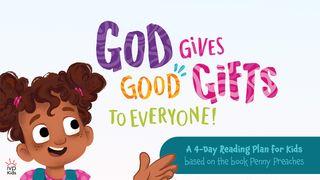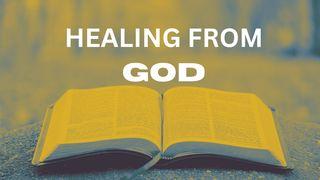Our Daily Bread - Bible BasicsSample

Settlement (1440–1050 BC)
When the section of “Beginnings” ended, Israel was positioned on the bank of the Jordan River, ready to invade Palestine. Israel’s leader, Moses, was dead; but God had raised up Joshua, a new leader, to take the people into Canaan. Their first obstacle was the Jordan River. Walking behind the Ark of the Covenant, the entire nation moved forward. When the feet of the priests carrying the Ark touched the river, the waters “piled up” and the people crossed into the land promised to Abraham.
Directly in their path was Jericho, a walled and fortified city. By a miracle, the walls fell flat and the city was conquered. After a brief delay at Ai because of Achan’s sin, the armies marched into Canaan. In a brilliant military campaign, they conquered most of the Promised Land. The tribes settled in the regions allotted them by God, and tribal leaders ruled the people. Conquered cities became tribal strongholds and the people became craftsmen, farmers, and shepherds. After Joshua died, the tribes became more and more independent. There was little central government. Judges arose to give regional leadership—men like Othniel, Gideon, Jephthah, and Samson—but conditions generally deteriorated until Israel was in a state of anarchy. We are told that “everyone did what was right in his own eyes.”
A beautiful little love story is told about Ruth, a Moabitess widow of an Israelite, who was rescued from poverty by Boaz. Because he was a relative through her mother-in-law Naomi, he could marry her and thus buy back her husband’s land for her inheritance.
As the 10th century opened, the tribes of Israel were threatened by the Philistines. Samson held them back for a while, but after his death the danger increased. The need for the tribes to combine their strength became evident.
Seeing God. As we look back on the period of Israel’s settlement, we can see God in a way that will help us know Him better. For example, if you read the account of Israel’s crossing of the Jordan River (Joshua 3–4) you can observe these truths about God:
He keeps His promises.
He gives His people directions (3:8).
He promises to be with those who move forward with Him (3:7).
He supports His appointed leaders (3:7).
He has the power to turn formidable obstacles into safe pathways (3:15).
He makes His presence known (3:15-16).
He has the power to control nature (3:15-16).
He wants His mighty works remembered and recounted to our children (4:1-7).
He wants nations to know of His might (4:21-24).
Seeing Ourselves. The people of ancient days were very much like us. Consider, for example, the following:
In the confirmation of Joshua’s call, we see our own need for assurance (Joshua 1–2).
In Achan’s sin of coveting wealth, we see our own greed (Joshua 7).
In Gideon’s fleece, we see our own desire for a visible communication from God (Judges 6).
In Jephthah’s vow, we see our own rash bargaining with God (Judges 11).
In Ruth’s plight, we see our own need for a kinsman-redeemer (Ruth 4).
In Israel’s constant relapses into sin, we trace our own spiritual experience.
Scripture
About this Plan

Are you curious about the Bible? Is any of it even relevant for today? The Bible Basics devotional provides you with an overview of the Bible and will demonstrate how the Old and New Testament books fit together. You will discover spiritual insights that will speak to your heart today and understand why the Bible has become an enduring and influential book. .
More
We would like to thank Our Daily Bread for providing this plan. For more information, please visit: http://odbu.org
Related Plans

Judges Part 2: Gideon

Psalms Daily Reading Plan

Joshua Fought the Battle of Jericho

Commissioned: Passion to Purpose: Living the Great Commission

Commissioned: Pray First: Unlocking Hearts Through Prayer

Gratitude: Rooted in God's Goodness

God Gives Good Gifts to Everyone

Psalms 1-5: Your Summer in the Psalms

How to Deal With Difficult People
